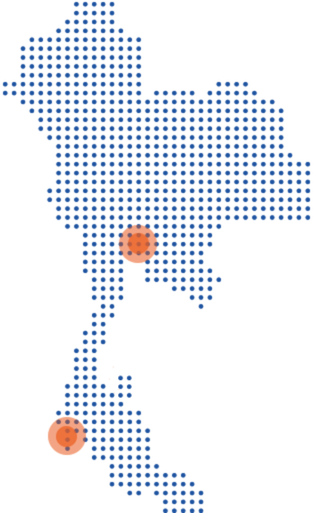

Thailand Strengthens Legal Framework Against Technological Crimes with New Emergency Decree
New Emergency Decree Sharpens Thailand’s Legal Response to Technological Crimes in 2025
Thailand has taken a step forward in addressing the rising challenges of technological crimes, including phone and electronic scams. On April 12, 2025, the government published amendments to the Emergency Decree on Measures for the Prevention and Suppression of Technological Crimes in the Government Gazette. The updated decree came into effect the following day, introducing a more refined legal framework to combat these issues effectively.
Key Changes to the Decree
The revised decree narrows its scope, streamlines procedures, and strengthens the collaboration between stakeholders. This reduces the compliance burdens for businesses while enhancing the legal tools available to tackle cybercrime.
One of the most notable updates is the refined scope of business operators subject to the decree. Now, only payment service providers under the Payment System Act and digital asset operators under the Royal Decree on Digital Asset Businesses fall under the decree’s purview. Digital platform service providers, previously included under the Royal Decree on Digital Platform Service Businesses That Are Subject to Prior Notification, have been excluded, thereby reducing the regulatory reach. The definition of technological crime remains unchanged, as earlier proposals to expand it were not included in the final version. This decision preserves the existing clarity and avoids unnecessary complexity.
Telecommunications and mobile service providers face new obligations to identify and act against potential technology crimes. These providers are now required to monitor suspicious activities and suspend SIM cards when instructed by the National Broadcasting and Telecommunications Commission (NBTC). This measure strengthens the role of telecom providers in preventing fraudulent activities.
The amendment also simplifies the procedures for suspending transactions and accounts. Previously intricate processes have been removed, and specific sector regulators, including the Bank of Thailand, the Securities and Exchange Commission, and the NBTC, are now authorized to impose tailored suspension requirements. Additionally, the newly established Center for Prevention and Suppression of Technology Crimes can alert financial institutions and businesses about individuals or digital asset wallet addresses linked to suspected crimes, prompting account suspensions.
Shared Liability and Implications for Businesses
Despite narrowing its scope, the decree maintains shared liability provisions for online social media platforms. These platforms, along with financial institutions and other operators, remain accountable for damages resulting from technological crimes. To avoid liability, platforms must adhere to regulatory standards under safe harbor provisions. This ensures that compliance with crime prevention measures is demonstrable and effective.
Businesses affected by the updated decree must closely monitor guidance from their respective regulators to ensure compliance. For online social media platforms, adapting to forthcoming safe harbor rules will be crucial to mitigating risks and maintaining operational integrity.
Conclusion
The amendments to the Emergency Decree on Measures for the Prevention and Suppression of Technological Crimes represent a approach to tackling modern cybercrime challenges. By refining the scope of regulation, reducing compliance burdens, and fostering interagency collaboration, Thailand’s government has created a framework to address technological crimes. Businesses and service providers are urged to stay informed and proactively adapt to these regulatory developments to enhance compliance and minimize risks.
Andreas Seela
Andreas primarily focuses on corporate/commercial, tax law, and real estate law. He previously worked for an international law firm in Germany and has experience in the Asian legal sphere. He holds a Master’s degree in business law and economics (LLM.oec.) and is currently working on his Ph.D. thesis at Chulalongkorn University in international law.

